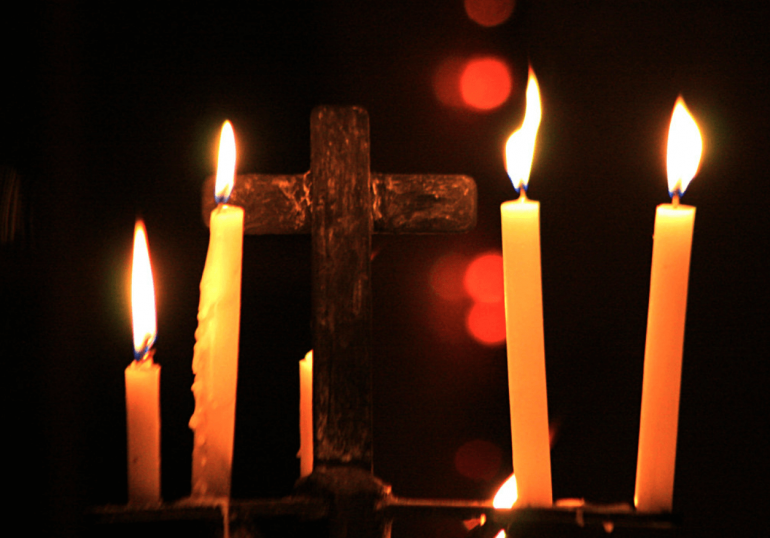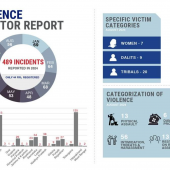Catholic School in India attacked by Hindu Mob: A Chronology of Misinformation

On December 6, a right-wing Hindu group of an estimated 500 people attacked St. Joseph school in Ganj Basoda town, 100 kilometres from Bhopal, the capital of Madhya Pradesh in central India. It was a Monday afternoon and the students were writing their examinations. The mob threw rocks at the windows, forced open the gates with iron bars, and vandalized the school property estimated at some 2 million rupees (around USD 26,000).
The school is run by the Congregation of the Malabar Missionary Brothers of St. Francis of Assisi, a community of brothers in the Syro-Malabar Catholic Church. The congregation operates orphanages, special needs schools, training centres for at-risk youth, and boarding houses.
The following day, Madhya Pradesh home minister Narottam Mishra assured representatives of the Catholic community led by the Archbishop of Bhopal Archdiocese Alangaram Sebastian Durairaj, appropriate action.
Later, Mishra said that the police registered a case of rioting against the perpetrators of Sunday's incident. He added that four persons were detained in Ganj Basoda town of Vidisha district.
The Free Press Journal reported that five people had been arrested in connection with the attack.
Misinformation campaign
According to a report in The Wire and another in the Hindustan Times newspaper, the militant Hindu groups were instigated into action by a YouTube video that alleged that eight Hindu children were converted to Christianity on the school premises.
On December 3, reports The Wire, a YouTube channel named "Aayudh," uploaded an "exposé" video insinuating that eight students who worship Hindu gods were made to partake in a sacrament, a Christian religious ritual. The channel implied "forced religious conversion." Using clippings and excerpts from various 'sources, the presenter, one Sourabh Kumar, alleged a religious conspiracy for mass conversions in the school.
At the 1:39 mark, a clipping of a publication titled 'Sagar Voice' is displayed. The headline of one of the articles in the publication reads "First Holy Communion at Ganj Basoda." The article carries a photo of a group dressed in white, including the eight children. It says that the priest of Ganj Basoda, Parish Father Jose Lee Cyrakkove, was present during the sacrament.
Alt News, a fact-checking website, spoke with Father Jose Lee. He said that 'Sagar Voice' is a bulletin of updates related to Church-related activities in Madhya Pradesh's Sagar diocese. As mentioned in the article, eight children participated in Holy Communion and it took place at St Joseph Church Ganj Basoda in Vidisha district of Madhya Pradesh on October 31.
"Holy Communion is a sacrament given only to Christians and takes place in the presence of the children's parents. It's worth noting that none of the children who participated in the sacrament attended the school that was vandalised. While I'm still trying to understand why the violence took place, I hope the authorities will take cognisance of the incident," the parish priest told Alt News.
The video ends with an excerpt from a Hindi poem titled "Power and Forgiveness" by the renowned Hindi-language poet Ramdhari Singh Dinkar. The poem was recited to advise Hindus to "not tolerate atrocities."
Threats and letters
On December 4, a day after the YouTube video was uploaded, the Ganj Basoda-based right-wing outfit Ahirwar Samaj wrote a letter to the Vidisha district collector, informing him of the alleged conversions. The letter also claims that eight Hindu children were converted to Christianity in St Joseph Senior Higher Secondary.
The letter threatens that "violent protests" will be carried out by Hindu groups if FIR is not filed against the "accused" and strict action is not taken within seven days, says the report in The Wire.
Speaking to The Indian Express, Vishva Hindu Parishad (VHP) leader Neelesh Aggarwal, who led the protest at the school, said that as per a media report, eight Hindu girls had been converted at the school on October 31. He said that National Commission for Protection of Child Rights chairman Priyank Kanoongo had also written the Vidisha collector over the issue. VHP is an Indian right-wing Hindu organization based on Hindu nationalism.
Brother Antony Pynumkal, principal of the vandalised school, told UCA News that he informed local police on December 5 about the possibility of an attack, which he had heard about through local media, but "none of the officials took us seriously and the vandals had free run of our campus for over an hour before the police removed them," he said.
Sub-Divisional Police Officer for Ganj Basoda Tehsil, Bharat Bhushan, denied the allegation. Bhushan also clarified to the Indian Express that the conversion complaint against the school authorities was baseless.
On December 6, the day the violence took place, Aayudh uploaded a "ground report" where its reporter took credit for the channel's reportage on the alleged conversions that led the Hindu community to take to the streets. In another video uploaded the next day, the channel again accused the school of running an "illegal conversion racket."
Several other right-wing channels have also amplified the false "conversion narrative," including Sudarshan News, reports The Wire.
The disinformation led to violence when twelfth graders in the school taking a mathematics exam barely escaped the attack.
December 6 was the anniversary of the demolition of the Babri Mosque. It was noted that "Ek dhakka aur do, St Joseph tod do" (Give it another push, bring down St. Joseph's school) was one of the slogans raised during the attack. This was also a signature tune used by the mob in the fateful demolition of the Babri Masjid in 1992.
Radio Veritas Asia (RVA), a media platform of the Catholic Church, aims to share Christ. RVA started in 1969 as a continental Catholic radio station to serve Asian countries in their respective local language, thus earning the tag “the Voice of Asian Christianity.” Responding to the emerging context, RVA embraced media platforms to connect with the global Asian audience via its 21 language websites and various social media platforms.
















- Reply
Permalink